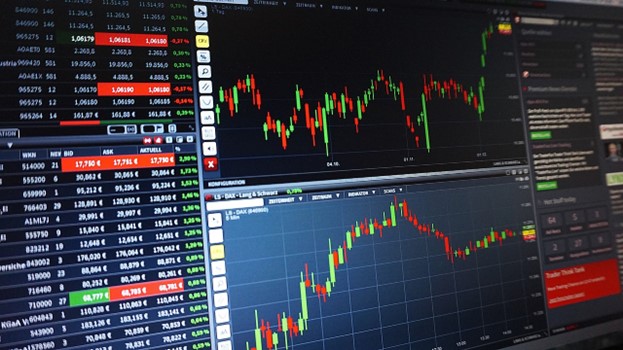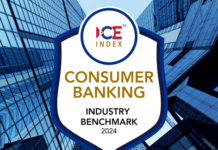Financial trading South Africa has gained significant popularity in recent years, with a growing number of individuals and institutions participating in the market. The country’s well-developed financial infrastructure, including reliable banking systems and advanced technological platforms, has contributed to the accessibility of forex trading.
Additionally, South Africa’s geographic location and time zone provide favorable overlap with major global financial centers, enabling traders to engage in around-the-clock trading activities. The forex market in South Africa operates under the supervision of regulatory bodies such as the Financial Sector Conduct Authority (FSCA), which ensures market integrity and protects investors’ interests.
Economic Factors Affecting Forex Trading
- Exchange Rates: Fluctuations in exchange rates play a crucial role in forex trading. Changes in the value of the South African Rand (ZAR) relative to other major currencies, such as the US Dollar, Euro, or British Pounds, can impact trading strategies and profitability.
- Inflation: Inflation rates affect currency values and purchasing power. Higher inflation can lead to currency depreciation, while lower inflation may strengthen the currency.
- Interest Rates: Diverging interest rates between countries influences forex markets. Higher interest rates attract foreign investments, increasing demand for the currency, whereas lower interest rates may lead to capital outflows and currency depreciation.
- Economic Growth: The overall economic performance of South Africa, including indicators such as GDP growth, employment rates, and industrial production, can impact forex trading. Strong economic growth often supports a currency’s value, while weak economic conditions may lead to depreciation.
- Political Stability: Political stability is vital for investor confidence and currency stability. Political events, elections, and policy changes can impact forex markets, causing volatility and uncertainty.
- Global Trade and Commodities: South Africa’s exports, particularly commodities like gold, platinum, and diamonds, can significantly impact forex trading. Changes in global demand and commodity prices affect the country’s trade balance and currency value.
Role of Government and Central Bank
- Monetary Policy: The South African Reserve Bank (SARB) implements monetary policies influencing interest rates, money supply, and inflation. Decisions regarding monetary policy can have a direct impact on forex markets.
- Capital Controls: The government may impose capital controls, such as limits on currency conversion or restrictions on the movement of funds, to manage currency volatility and safeguard the economy.
- Regulatory Framework: Regulatory frameworks and policies established by government bodies, such as the FSCA, ensure fair practices, transparency, and investor protection in the forex trading sector.
Market Sentiment and Investor Confidence
- Consumer and Business Confidence: The confidence levels of consumers and businesses impact economic activity and, consequently, forex trading. Positive sentiment can attract investments, strengthen the currency, and boost trading volumes.
- Investor Risk Appetite: Global investor sentiment and risk appetite influence forex markets. During periods of heightened risk aversion, investors tend to favor safe-haven currencies, potentially impacting South Africa’s currency.
- Market Volatility: Volatility in forex markets can present both opportunities and risks for traders. Economic factors, geopolitical events, or sudden shifts in investor sentiment can lead to increased market volatility, affecting trading decisions and strategies.
Import and Export Dynamics
- Trade Balance: The balance between South Africa’s imports and exports affects the demand and supply of its currency. A trade surplus (exports exceeding imports) can strengthen the currency, while a trade deficit may lead to currency depreciation.
- Current Account Balance: The current account balance, which includes trade in goods and services, investment income, and transfers, impacts the currency’s value. A positive current account balance generally strengthens the currency.
- Currency Value and Competitiveness: The value of the currency influences the country’s export competitiveness. A stronger currency can make exports more expensive, potentially affecting forex trading and trade dynamics.
Impact of Global Economic Events
- Global Economic Trends: Global economic events, such as changes in major economies’ monetary policies, economic indicators, or geopolitical developments, can have a significant impact on forex trading in South Africa.
- Financial Crises: Financial crises or instability in global financial markets can lead to heightened volatility and increased risk aversion, impacting forex trading activities and currency values.
- Trade Wars: Trade tensions and disputes between countries can disrupt global trade flows and currency values. Tariffs, trade restrictions, or retaliatory measures can impact forex trading and currency exchange rates.
Socioeconomic Factors and Market Participation
- Income Levels and Disposable Income: The income levels and disposable income of individuals in South Africa can influence their participation in forex trading. Higher income levels and financial stability may encourage increased market participation.
- Financial Literacy and Education: Awareness and understanding of forex trading concepts, strategies, and risks play a crucial role in market participation. Adequate financial literacy and education programs can enhance traders’ decision-making abilities.
- Access to Technology and Infrastructure: Availability of technology, internet connectivity, and access to reliable trading platforms and infrastructure impact forex trading participation rates.
Role of Financial Institutions and Forex Brokers
- Market Liquidity: Financial institutions, including banks and liquidity providers, play a vital role in maintaining market liquidity, ensuring efficient forex trading, and facilitating trade execution.
- Access to Trading Platforms and Tools: Forex brokers offer traders access to trading platforms, analytical tools, and educational resources that enable efficient market analysis and execution of trades.
- Broker Regulations and Services: Regulatory oversight of forex brokers ensures compliance with industry standards and investor protection. The quality of services offered by brokers can impact traders’ experiences and outcomes.
Psychological Factors and Trading Behavior
- Fear and Greed: Psychological factors such as fear and greed can influence traders’ decision-making and risk appetite. Emotion-driven trading behavior can lead to suboptimal outcomes and increased volatility.
- Risk Management: Effective risk management strategies, including the use of stop-loss orders, position sizing, and proper risk-reward assessment, are essential for successful forex trading.
- Emotional Biases: Traders may be prone to cognitive biases, such as confirmation bias or anchoring, which can influence their interpretations of market information and trading decisions.
Article Provided




























